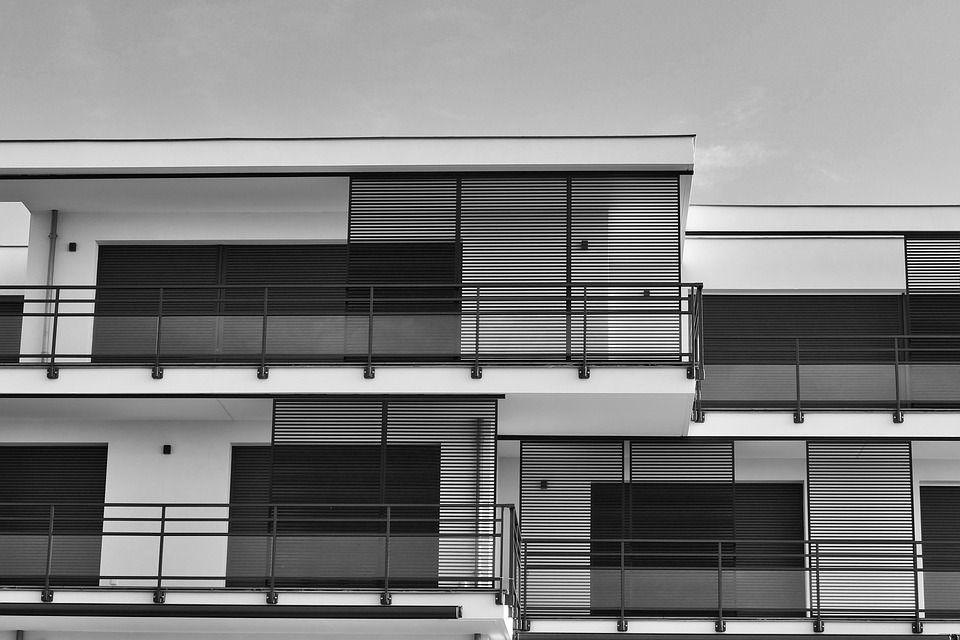A Guide to Flat Roofing Systems
Weather you are installing a roof on a new building or considering a replacement on an existing property, use this guide to help decide if a flat roof design fits your budget, geography, and style.

Roofing is the first line of defense towards any natural disasters. Without a sturdy roof, your apartment and residents are left at risk. Weather you are installing a roof on a new building or considering a replacement on an existing property, use this guide to help decide if a flat roof design fits your budget, geography, and style.
Pros of Flat Roof Systems
Aesthetic: Flat roofs offer a clean aesthetic to a building. If your property is in the city or overlooks a beautiful landscape, a flat roof can complement the environment. Flat roofs are also a characteristic of modern design, so if your property is contemporary, this might be a priority for you and your tenants.
Useable Space: A flat roof allows for more efficient use of space both inside and out. Unlike a pitched roof, a flat roof offers rooftop space can be used as a rooftop patio, flower garden or give you the option to install solar panels out of view.

Cost: A flat roof is significantly cheaper than a pitched roof since the surface area of a flat roof is less than that of a sloped roof. Although installation is cheaper, depending on the amount of rainfall your property’s area receives, the maintenance costs might override the initial short-term costs.
Maintenance: The flat roof design makes it easier to inspect and maintain the roof. Issues can be addressed easier, but don’t underestimate the importance of regular maintenance.
Improved Energy Efficiency: Flat roofs may be more energy efficient depending on the climate and what materials are used for the roofing system.
Cons of Flat Roof Systems
Climate Limits: Low slope roofs have an increased tendency to collect water. If you live in a rainy or snowy climate, this option might not be ideal for your property.
Increased Maintenance: Flat roof drainage is not as effective as a pitched roof. Without regular inspection, drains can become clogged, leading to damage and leaks.
Lifespan: Standing water, debris and clogged drainage systems may shorten your roof’s lifespan to as short as 10 years if not monitored regularly. Many flat roof leaks are due to the lack of regular inspection, so be sure you have regular maintenance checks if you choose a flat roof for your property.

Types of Flat Roof Materials
If you decide that flat roofing is right for you and your property, take the next step and consider which material is best. There are several flat roof options - here are the three most common kinds of flat roof systems.
1. BUR (Built-Up Roof): This flat roof systems contains layers of waterproof membrane, tar and gravel to seal the flat roof surface. This flat roof system is a great affordable option, plus it has fire resistant properties that are a great safety factor multi-family property. Built-up roofs are also very sturdy and efficient insulators due to their several layers. BUR systems can last 15 - 20 years and lasts longer in warmer climates. When installing this roofing system, your property must be empty and free of tenants during installation. BUR systems cost between $5 and $7 per square foot.
2. PVC (Polyvinyl Chloride): PVC is one of the most popular roofing materials used for flat roofs. PVC sheets are an attractive option for waterproof performance as well as pedestrian traffic coating. PVC allows you to turn a flat roof into a usable space - ideal for multi-family properties. PVC roofing is also easy to install and maintain. PVC roofing typically costs between $5 and $8.50 per square foot.

3. EPDM Rubber (Ethylene Propylene Diene Monomer): EPDM is made of synthetic rubber made of recycled materials. EPDM roofs are durable, inexpensive and have a longer lifespan than metal roofs. EPDM roofs require seaming which means that there are more chances for water to seep through seams and lead to damage. If roofs are spray-applied, then the chance of damage is significantly lower. EPDM installation costs between $4 and $8 per square foot.
4. Modified Bitumen: Bitumen roofing is another long lasting option for flat roofs. This is a single ply roofing system that is rolled onto the roof surface. These roofs can last at least 20 years due to their durability. They are ideal for extreme weather climates that have high winds, hail and heat. Bitumen roofs range from $3 - $6 per square foot.


